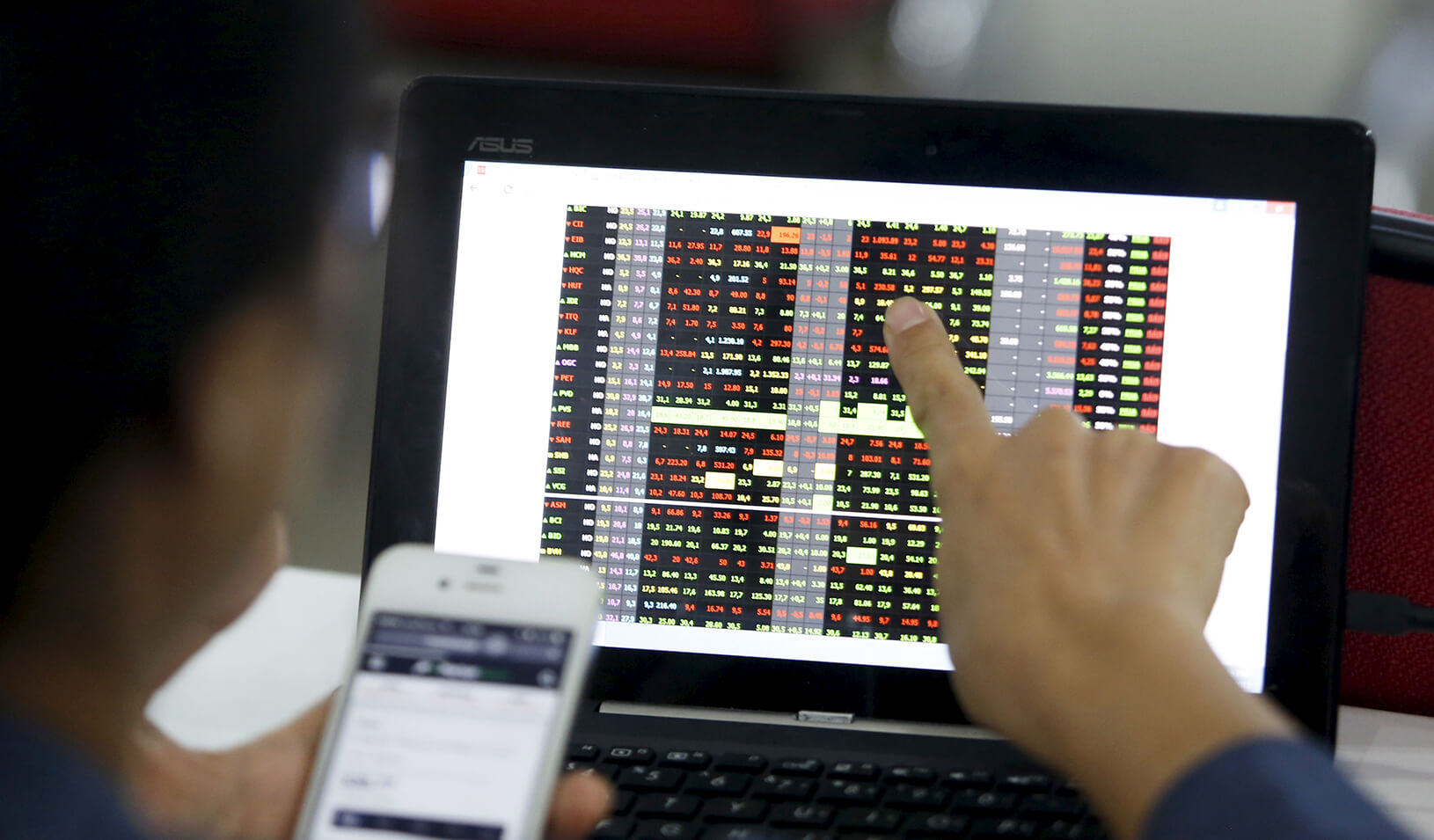
When a firm is ready to go public, top executives head out on a “road show,” along with the company’s underwriters, to promote the stock offering. The information presented is little different from what’s in the prospectus (the lawyers make sure of that). Yet hotel conference rooms are packed with analysts and fund managers jostling for the best seats.
The lure of a free breakfast? No, they come to watch the CEO in action. Bill Whelan, head of the securities practice at law firm Cravath, Swaine & Moore, says institutional investors want to look the company’s leader in the eye and see how they handle an audience. “The most important takeaway” from the road show, he says, “is the impression they get from management.”
But do those subjective impressions actually affect stock price? Or, with all the hard information available in an IPO filing, do investors factor out personalities and focus on the financials? It’s a question that business scholars have long debated, and it’s exceptionally difficult to test. After all, you can’t run regressions on investors’ thoughts.
But Stanford Graduate School of Business professor Elizabeth Blankespoor and her coauthors, Greg Miller of the University of Michigan and Brad Hendricks of the University of North Carolina, have come up with an elegant solution, drawing on recent work in psychology. Their findings, reported in a new paper, are unambiguous: The more favorably the CEO is perceived, the higher the firm’s valuation — and that holds true at every stage of the IPO process.
The results underscore just how important the road show is to investors as a source of information. And for companies planning a road show, the message is clear: It’s not just what you say that matters, it’s also who says it and how well.
Reading Investors’ Minds
Managerial ability is often cited as a major concern of investors. In the case of firms that are already publicly traded, opinions about the CEO are formed and revised over time as new information trickles out. That makes it especially hard to isolate the effect of those opinions on stock price — it’s never clear who thinks or knows what, when.
In that respect, Blankespoor says, IPOs are an ideal laboratory: “For most investors, the road show is the first time they’ll see the CEO. And they all watch the same presentation within a roughly two-week span,” after the setting of an initial proposed price and before the revision to a final offer price. “That makes for a tight link between perceptions and valuation,” she says.
Still, investors aren’t about to share their conclusions publicly. So Blankespoor and her colleagues drew on insights from psychology to devise a clever proxy: By narrowing their focus to basic personality traits, as revealed through body language and other nonverbal cues, they were able to substitute ratings gathered from disinterested individuals after viewing short videos.
“The idea is, we all form judgments of others rapidly and almost unconsciously,” Blankespoor says. It’s that intuitive cognition journalist Malcolm Gladwell wrote about in Blink; psychologist Daniel Kahneman calls it System 1 thinking. It might not be a good way to assess a CEO’s strategic vision, but these quick takes are surprisingly accurate at sizing up strangers in social situations. And because it’s a universal capability, the judgment of any random person should be similar to that of an investor.
Following this hunch, the researchers assembled 30-second video clips from 224 actual road show presentations between 2011 and 2013. To zero in on expressive behavior, they filtered the audio to render the words unintelligible while retaining vocal pitch and rhythm. “It’s like the teacher in Peanuts cartoons,” Blankespoor laughs, “where they go, ‘Wah-wah-wah-wah.’”
The team then hired people on Mechanical Turk, a crowdsourcing task website, to rate the speakers for competence, attractiveness, and trustworthiness — attributes that previous work had shown are valued in a leader. At least 40 people viewed each video, and their scores were averaged. Finally, the three attribute scores were combined to yield a single composite index of perception for each CEO.
Personality Matters
To be sure, that number captures only some of what you’d look for in a CEO, but it doesn’t need to be complete. Think of it as the informational equivalent of the fluorescent dyes used as markers in biological tests: If even this partial, proxy variable has a measurable effect on shares, it proves that investors do fold subjective assessments of management into their valuations.
And that’s just what the analysis shows: After controlling for other factors that could affect stock price — including data about the CEO such as age, experience, and education — firms with CEOs who rate higher in these seemingly superficial personal assessments receive a larger price bump from the road show. For example, raising the perception score of an average CEO by just 5% yields an 11% boost in final market price.
Not only that, those firms attract more prestigious underwriters to start with, and they begin the road show with a higher proposed offer price, indicating that the underwriters make similar assessments. Likewise, at the end of the IPO process, those firms have a higher price after the first day of public trading — a final shout of “amen” from the broader market.
“This is the first study to examine how information learned during the road show influences IPO pricing,” Blankespoor says. “Institutional investors often say how valuable it is to get a feel for the management team in person, and now we have empirical evidence to quantify that.”
Interestingly, the researchers also ran separate regressions on each of the three attributes rated. While they found that the CEO’s perceived competence and attractiveness had a significant impact on firm valuation, trustworthiness on its own had no effect. “Maybe investors are relying on the SEC and auditors to cover that one,” she muses.
First Impressions Are Everything
On the surface, these are rather astonishing results. After all, snap judgments of an executive’s podium manner would seem to be a very loose indicator of future profitability and growth.
But Blankespoor points out that much of a CEO’s job is communicating with stakeholders such as employees, customers, and suppliers. “A leader has to be able to command attention, persuade, and motivate people,” she says. “So personal presence, even just the ability to make a strong initial impression, is important. In a way, they’re constantly making first impressions.”
And studies in other fields have shown that our quick, intuitive judgments of people often predict future outcomes — for instance, in debt repayment, political elections, and medical malpractice. “The linkage between CEO behavior and firm performance isn’t as direct,” Blankespoor says, “but this literature demonstrates just how information-rich that thin slice of behavior is.”
So are investors right to incorporate subjective assessments of CEOs? If not, any resulting price premiums would dissipate over time. To check for this, the researchers also looked at stock prices up to a year after the IPO. They found no correction, suggesting that those assessments were not only accurate but also predictive of the company’s near-term success.
“It means investors are gleaning real additional information about the CEO from their nonverbal behavior,” Blankespoor says, “and, further, that perceptions of management are signals for firm value.”
Keep It Real
But can’t a CEO fake it? After all, road show presentations are rehearsed and vetted like presidential stump speeches, and executives are coached on their speaking skills. “That’s true,” Blankespoor says, “but most of our expressive behavior is unconsciously generated. That’s why it’s a good signal — it can’t easily be manipulated.”
Still, she adds, if you’re a CEO preparing for a road show, training may be helpful. It won’t fool investors into seeing you as something you’re not, and that should never be the goal. But it may bolster your confidence and help you relax, so your own true qualities shine through.
Indeed, if the road show is in some ways a performance, executives might take a cue from theater: Good actors don’t “put on” a character; they find it in themselves. So when you get up in front of that audience, know yourself, be yourself, and show them who’s boss. That’s what they’ve come to see.



